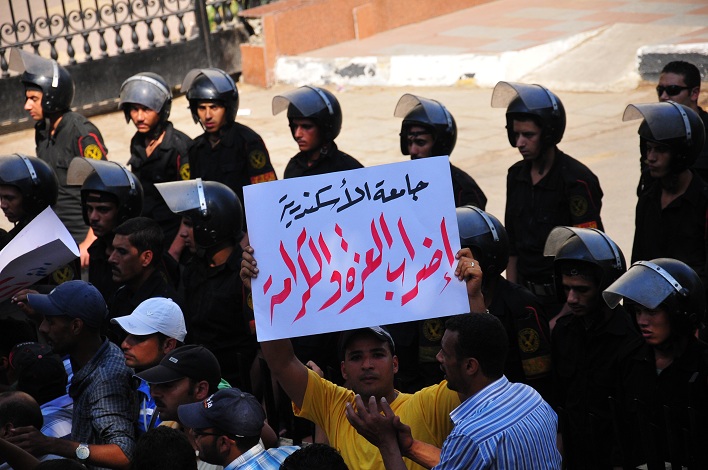NABLUS: A senior Israeli commander in the West Bank recalled that he used to carry a thick notebook full of names of wanted militants. Today, the list is so thin it "almost doesn’t exist," he said.
And when Israel’s military chief recently visited a famous church in Palestinian territory, he had some unlikely escorts: Palestinian security forces.
Such sights were inconceivable just a few years ago, reflecting the startling progress made by US-trained Palestinian security forces in the West Bank.
But Palestinians are asking whether the successful security cooperation is sustainable and whether it will truly move Palestinians toward statehood.
And can continued cooperation be justified if peace talks go nowhere?
The coordination, which has been going on for several years, still makes some within the forces uneasy.
"Israel wants to arrest someone and you know about it or see it or are even a part of it," said a 39-year-old Palestinian security officer in Nablus.
"You participate in the crime."
Like many of his comrades, the officer is a former militant who once spent his days battling Israel. In a deal with Palestinian President Mahmoud Abbas, Israel has granted amnesty to hundreds of ex-militants in return for laying down their arms.
Speaking on condition of anonymity for fear he would be fired, the officer said his colleagues have accepted their leaders’ decision to renounce violence, but he feels at times that Palestinian forces are doing Israeli’s bidding.
"Coordination is supposed to go both ways, but it never does," he said. "The Palestinian side is weak and Israel only wants us to do what it says."
The United States and Europe have poured millions of dollars into the Palestinian security forces, considering their competence a prerequisite for statehood. And Israeli army heads acknowledge the progress.
The officer who once tracked militants said he meets with Palestinian security officers once a month and visits the Palestinian city of Bethlehem every few months as their guest, carrying only light arms.
"I place my security in the hands of the Palestinian security forces," said the officer, who was not allowed to be identified under military rules. Last month, he said he was joined by Israel’s military chief, Lt. Gen. Gabi Ashkenazi.
The Palestinians seek an independent state in the West Bank and Gaza Strip with a capital in east Jerusalem, territories Israel occupied in the 1967 Mideast war. Interim peace agreements have given them limited autonomy in about 40 percent of the West Bank, but Israel retains ultimate control. Palestinian forces are largely confined to urban areas.
Their successes and limits were clear on a recent night when reporters from The Associated Press rode along on patrol in Nablus, a city of 335,000 famous for deadly battles during the second Palestinian uprising.
Today, it has a new mall and movie theater.
Two trucks from National Security, a military-style police force that has received US training, left their base at 11 P.M. to find quiet streets. A few cars circulated and groups of men chatted at pastry shops and felafel stands.
The officers said they handle occasional car thefts and burglaries and most commonly, fights — a sign of how little serious crime remains. They visited a Palestinian checkpoint, one of four on the city’s exits marking the limits of their jurisdiction.
Ten minutes before midnight, headquarters radioed that the Israeli army was going to enter the city. No one knew when or why, but within 10 minutes all the city’s Palestinian forces were back on base. Even the door guards had to lock themselves inside.
The next day, the army called the incursion "a routine patrol."
Palestinian Interior Minister Said Abu Ali, who oversees the security forces, said these incursions undermine his forces. But he rejected allegations that Israel gives them orders.
"The security apparatus don’t work to serve or perpetuate the occupation," he said. "They are part of the Palestinian institutions that represent our national aspiration to end the occupation and found the Palestinian state."
The Israeli army says the coordination allows Palestinian autonomy, to a limit.
"When there is a serious threat, Israel does what it needs to do," said spokesman Maj. Peter Lerner.
The cooperation has been boosted by the common enemy of Hamas, the Islamist group that ousted Abbas’ forces from the Gaza Strip in 2007 and now runs a rival government there. In the West Bank, Abbas’ forces often arrest Hamas activists after Israel releases them, indicating close coordination.
A senior Israeli intelligence official praised the Palestinian security efforts but warned that maintaining security in the West Bank depends on progress in currently stalled peace talks with Israel.
Additional reporting by Daniel Estrin.

